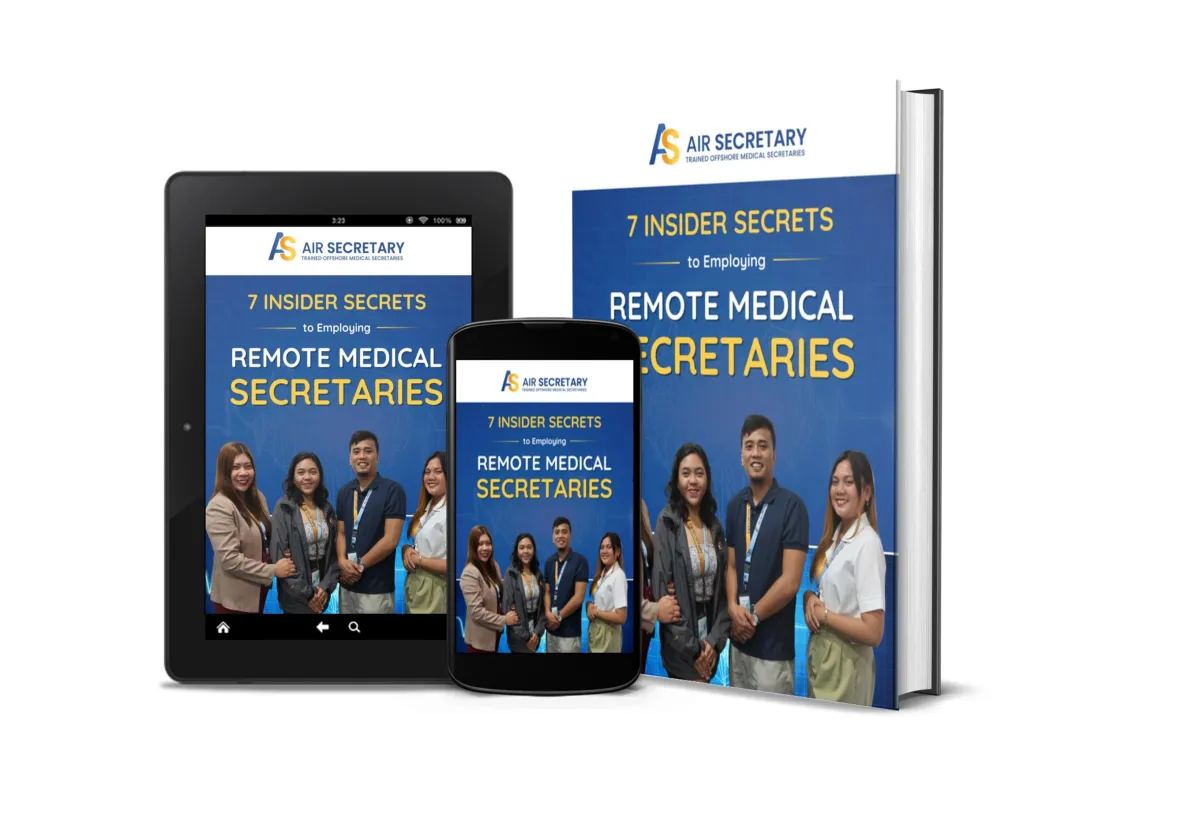Blogs

Business systems for medical practice
“Am I ever going to have to do this again? If so, systemise it”
Specialist medical practices are complicated to run. Documented systems result in saving significant time and money. In this article, I explain what systems are and how they will save you time and money. You should have your systems documented and there are seven reasons why. Watch the video which demonstrates how we use a cloud based system to save all our practice systems.
Medical practices benefit from well-documented business systems. Systems are standard operating procedures (SOPs). They documented instructions on how to complete all tasks required in a medical practice. For example, how to book a new patient appointment or how to book a patient for a procedure or operation.
Here are seven reasons why your medical practice should prioritise documenting its business systems:
1. Enhanced Efficiency and Productivity
Documenting business systems streamlines operations by providing clear guidelines and procedures. This helps in reducing time spent on trying to work out how to do tasks. It reduces decision-making and problem-solving, allowing staff to efficiently get the task done so they can also focus on patient care. Efficient systems minimise the risks of errors and redundancies, further boosting productivity.
2. Improved Quality of Care
With well-documented systems, healthcare providers can ensure consistency in patient care. Systems for clinical processes mean that every patient receives the same high standard of care, regardless of which staff clinician sees the patient. It also saves the clinicial a lot of time in trying to work out how to arrange things like X-rays, investigations, procedures and operations or referrals to other specialists.
3. Easier Staff Training and Onboarding
New employees can be brought up to speed quickly and effectively through documented systems. This reduces the time required to learn and the potential for errors during the onboarding period. Comprehensive documentation serves as a reference tool, allowing staff to independently learn how to complete certain tasks.
4. Improved data security and privacy
Privacy and data security is more important than ever. Documenting your data security and privacy systems helps ensure that all staff comply with strict data security policies including password protection, avoiding malicious attacks and avoid loss of confidential information.
5. Facilitates Continuous Improvement
Documented systems provide a baseline that can be periodically reviewed and improved. As healthcare technologies and best practices evolve, having a written record makes it easier to update procedures and integrate new methods.
6. Enhanced Communication
Documented systems improve communication among staff, between clinicians and secretarial staff and with patients. This is especially important in a medical setting where miscommunication can lead to serious consequences. How certain messages are communicated within your team is important so that urgent messages are received in a timely fashion while non-urgent messages do not cause unnecessary interruption.
7. Scalability and Growth
For practices looking to expand, documented systems are invaluable. They provide a scalable model that can be replicated in new locations. This ensures consistency across the practice, maintaining quality and culture regardless of size or location.
Conclusion
Documentation of business systems leads to increased efficiency, improved patient care, easier staff training, better compliance, continuous improvement, enhanced communication, and facilitates growth. By investing the time and resources into documenting your business systems, your medical practice positions itself for success in the dynamic healthcare landscape.
Watch our demonstration on how we create and store our business systems for medical practice to improve efficiency, saving time and money
Systems are policies and procedures on how to do every task required within our medical practice. The cool thing is that when you sign up with us at Air Secretary and utilise one of our Medical Secretaries, we'll give you access to this whole site so you can use it, edit it, and adjust it to suit your own practice. Watch how things improve in terms of efficiency. Let's have a look at it. It's called Ask Air.
This is Ask Air. It's held on a cloud-based system. There are instructions on how to do everything. The site is broken up into clinical, secretarial, Clinic to Cloud guide, which is our practice management software, and admin. Within the clinical part, we divide it up into all the things that clinicians need to be able to do. For instance, if you need to organise a PET scan for a patient, you can click on here, and there are links to all of the request forms that may be required, including phone numbers and emails for where to send them including information for patients. If you want to organise a sleep study or if you want to prescribe someone's CPAP, there are instructions on how to do these things too. What about complex drugs? Prescribing some of these complex drugs is a bit difficult because you have to apply through PBS, but here is a list of criteria which need to be fulfilled, and links directly to application forms.
So, you can see that having this on a cloud-based application makes things a lot easier when compared to having to find all this information during a clinic. It's excellent for our secretarial team because there are instructions on everything they need to do. So, when we get new staff, it's easy to train them. If we want to book a new appointment in Clinic to Cloud, here's a summary on how to do it. We have a lot of explanatory videos as well as instructions on how to complete these tasks. So, there are videos on how to do everything, setting up telehealth appointments, looking at item numbers, and how to work out private fees. Item numbers and an explanation as to what they are, so that there's a quick reference and not having to look up the MBS, how to do inpatient billing, and so on. You can see there are instructions on how to do everything.
Within the admin section, this is how we set up our admin. DialPad is our phone system, how to use Google Drive, what marketing activities that we do, data security, which is becoming more and more important. Here is all of our policies and procedures with regards to how we maintain good data security.
So, there you go. There's just a quick demonstration of how we write and store our business systems. When you sign up with Air Secretary, I'll give you a copy of this, and you can edit this and tailor it exactly to how you'd like it to suit your practice. Hours and hours, over a period of four years, has gone into preparing this document, and we update it on an ongoing basis. So, I really hope that you see value in this and it improves the efficiency of your practice.



